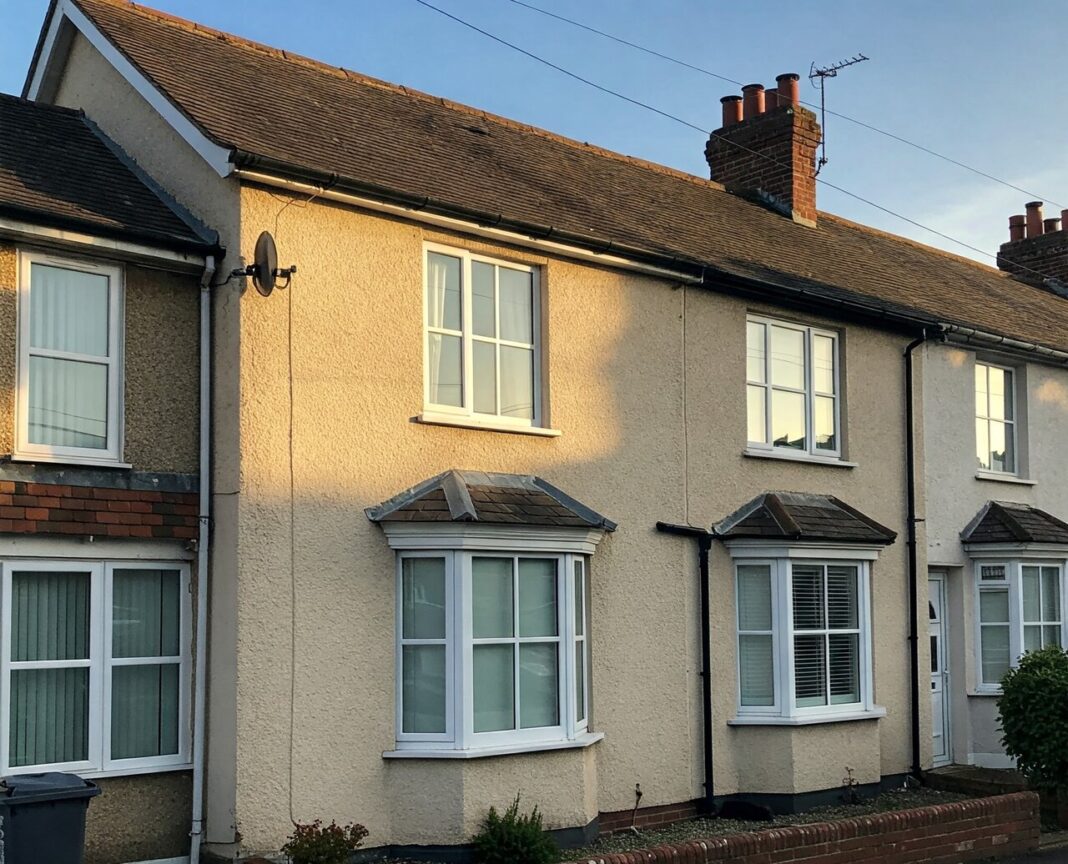Landlords may soon be required to pay national insurance (NI) on rental income as the Treasury examines new ways to raise revenue for Rachel Reeves’s autumn budget.
Officials are understood to be considering whether to extend NI to property earnings, a move that could generate as much as £2 billion a year. The proposal has been pushed by Labour MPs, government aides and the Resolution Foundation think tank, which Reeves consulted before becoming chancellor.
At present, pensions, savings and property income are exempt from NI, which is charged on salaries at 8%.
The Times reported that sources close to budget discussions said the levy could be widened to cover rental income, likening the move to Labour’s plan to extend VAT to private school fees.
ELECTION PLEDGE

Reeves’s allies insist the measure would not breach her election pledge not to raise the rates of VAT, income tax or NI, arguing that expanding the scope of NI differs from increasing its rate.
Official figures show landlords earned £27 billion in net property income in 2022-23.
An 8% levy would have raised £2.18 billion. With 2.2 million people declaring rental income, the most common bracket was £50,000–£70,000.
For the 360,000 landlords in that range, the change could mean an additional £1,057 annual bill. Smaller landlords could be hit harder, as NI rates fall from 8% to 2% on earnings above £50,000.
FISCAL PRESSURES
The plan was considered ahead of Reeves’s first budget last year but shelved. With borrowing costs for government debt at their highest in 27 years and a fiscal hole estimated at up to £40 billion, Treasury officials are now reassessing the option.
Critics warn that imposing NI on rental income could deter investment in the lettings market, reducing supply and driving rents higher for tenants already facing affordability pressures.
INDUSTRY REACTION
The proposal has been met with concern across the housing sector.

Ben Beadle, chief executive of the National Residential Landlords Association, told the BBC’s Jeremy Vine Radio 2 show: “We’ve got a dozen renters chasing available homes, and yes, rents are coming down from their height, but they’re still increasing 6% in the year to July, and the best way to grow ourselves out of this problem is to build more homes, but also to incentivise making properties available to rent.
“It might be that if a landlord gets into financial difficulty and then sells, that house is then available for a renter to buy and have their own home.
“We’re certainly seeing some evidence, not particularly of first-time buyers purchasing, but certainly other landlords, bigger landlords, buying up smaller landlords.
“I think if renters are struggling to pay their rent I’m going to proffer that they’re probably going to struggle to buy a property too. What we need is a more affordable, private rented sector, and the best way to do that is to increase supply and keep landlords in the sector, and to make sure it’s an attractive place to be. Don’t punish landlords.”
POLITICAL POINT SCORING

And Marc von Grundherr, director at Benham & Reeves, says: “This move smacks of political point-scoring rather than sound housing policy.
“Applying national insurance to rental income threatens to undermine rental supply by squeezing small and medium-scale landlords, who may pull up stakes or restructure.
“We’re already seeing supply pressures in many areas, pushing costs onto tenants. A policy with such serious unintended consequences deserves more scrutiny and a strategic approach, not partisan theatre.”
THE FINAL STRAW

Jeremy Leaf, north London estate agent and a former RICS residential chairman, says: “The government may feel there is a bit more fat on this calf and can take some of it but a lot of careful thought is needed. These plans might generate some additional revenue but at what cost?
“Landlords are already being clobbered by tax and regulatory changes which have reduced their profits and increased operating costs.
On top of that, the Renters’ Rights Bill is imminent. As it is, it is widely appreciated that there isn’t enough rental property on the market and if this plan to charge national insurance comes to pass, this extra tax may just be the final straw.
“This could result in in even lower supply, creating less choice, lower standards and high rents which is what governments want to avoid.
“As we have seen with the recent property tax proposals, it is all very well to put these feelers out to gauge reaction but what isn’t always appreciated that even the rumour of change can be enough to put people off.
“Anything that compromises confidence is bad news for the housing market.”
“Buyers may be wondering why they should pay stamp duty now if they won’t have to after the Budget if changes are introduced. This could have the effect of compromising the market.
“I have already spoken to two landlords this morning who are asking ‘what’s the point?’ following the NI rumours. Anything that is unsettling and compromises confidence is bad news for the housing market, even if it never actually comes to pass.”
DRIVE LANDLORDS AWAY

Timothy Douglas, head of policy and campaigns at trade body Propertymark, says: “Landlords in the private rented sector have been impacted significantly by tax changes in recent years, such as reduced rates of mortgage interest relief and increased rates of property tax when purchasing a buy-to-let or expanding their portfolios.
“The UK Government must understand the impact of these changes before embarking on further tax reforms that ultimately push up rent prices and reduce the number of much-needed properties to rent.
“Further tax imposition will mean less revenue for the Exchequer.”
“Further tax imposition will mean less revenue for the Exchequer because it will drive landlords away from the market.
“We need policies that ensure the private rented sector can increase supply to meet the demand for homes to rent, making rents more affordable. This is the only way to improve the housing market for renters, and secure increased revenue for public services.”
MOVE TOO FAR

Siân Hemmings-Metcalfe, operations director at Inventory Base, says: “Layering yet another financial burden onto landlords, at a time when the Renters’ Rights Bill is about to reshape the sector, is a move too far.
“The focus should be on stability and encouraging long-term investment into the rental market, not short-term populism designed to plug holes in the Treasury’s coffers.
“Policies like this risk deterring responsible landlords, which ultimately undermines the very protections and standards tenants are being promised.”
TIPPING POINT

Sam Humphreys, Head of M&A at Dwelly, says: “The reality is that many landlords already operate on fine margins, and measures like this could be the tipping point that drives them out of the sector altogether.
“Once stock is lost, it is incredibly difficult to rebuild, and the people who pay the price are tenants facing rising rents and fewer housing choices.
“If the Government wants to improve affordability, it should be working to increase supply – not choking it further with punitive taxation.”
HMO’s HARDEST HIT

Vann Vogstad, Founder and CEO of COHO, says: “The Chancellor’s reported plan to introduce National Insurance on rental income in the upcoming Autumn Budget is likely to hit HMO and shared-living landlords hardest.
“These landlords typically generate higher rental income per property than standard buy-to-let investors, meaning they’ll shoulder a particularly large share of the proposed 8% levy.
“While this might seem like a clever revenue-raising move from the Treasury’s perspective, it risks triggering serious consequences for the rental market. For many landlords, already squeezed by years of tightening regulation and tax changes, this could be the final straw, prompting them to exit the sector altogether.
“The inevitable result would be a shrinking supply of rental properties.”
“The inevitable result would be a shrinking supply of rental properties and further upward pressure on rents at a time when tenants are already grappling with sky-high living costs. Even those landlords who stay in the market are likely to seek ways to recoup their losses, and raising rents will be the most direct route.
“Tenants always seem to bear the brunt of government efforts to extract more from the rental sector.
“In this case, HMO tenants could be particularly vulnerable. These properties already face mounting barriers, including growing resistance from local authorities influenced by negative media narratives around shared housing. It would be a real blow to see this vital part of the market unnecessarily eroded.”









